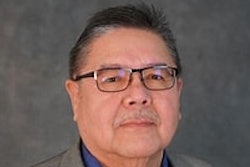American Indian Programs Cut to Pay Lawyers in Trust Case
WASHINGTON
Interior Department officials, ordered to pay $7 million to lawyers for American Indians suing the government over lost royalties, cut Indian programs to find most of the money.
Jim Cason, associate deputy interior secretary, said the cuts will include $2 million from a fund for lawyers performing tribal work and $1 million from Bureau of Indian Affairs’ central and regional offices and some tribal programs. The decision won’t affect schools or public safety.
Cason said he tried to spread the cuts so they would have the least impact on Indians. But he said the court order gave him no option but to take the money from BIA, one of several agencies the department oversees. “This was not a Park Service or a Fish and Wildlife problem, it’s an Indian problem,” he said.
The Indian plaintiffs called the decision a “devious and deceptive” attempt to punish Indians for winning in court.
“This is totally unreal,” Elouise Cobell, a Blackfeet Indian from Browning, Mont., and the lead plaintiff in the lawsuit against the government, told The Associated Press. “Sometimes I think the department’s behavior has deteriorated to the bottom of the basement, and things like this happen, and I think it’s gone to the fiery bowels of the earth.”
The U.S. District Court issued the order in response to a petition from the plaintiffs in their 10-year-old lawsuit. The plaintiffs had originally asked for $14 million.
Indians accuse the government in a class-action lawsuit of mishandling more than $100 billion in lost oil, gas, grazing, timber and other royalties from their lands dating to 1887.
They sued to force the government to account for the lost money but now say they are willing to settle for $27.5 billion — an amount some lawmakers have said is too high.
Cason announced the cuts in a letter to tribal leaders, saying that because the expense was unexpected, Indian programs would have to be cut.
More than $2 million came from the Indian trust office and the office doing a historical tally of Indians’ trust accounts.
Almost all of the money set aside to reimburse tribal lawyers — who work on water rights and boundary issues, among other legal matters — was cut. About $1.7 million will come from the Treasury Department.
Cobell said the department knew it would be asked to pay attorney’s fees and should have set aside a fund ahead of time. She said she would fight the department’s decision.
“This is an old tactic Interior has used for years — try to divide and conquer,” Cobell said. “Congress should be very upset.”
Cason said he hoped the plaintiffs find another solution.
“We were faced with an order from the court,” he said. “If the plaintiffs are intent on going to Capitol Hill … that’d be fine. I’d be happy if they can come up with a result; we weren’t able to find that.”
— Associated Press
© Copyright 2005 by DiverseEducation.com















